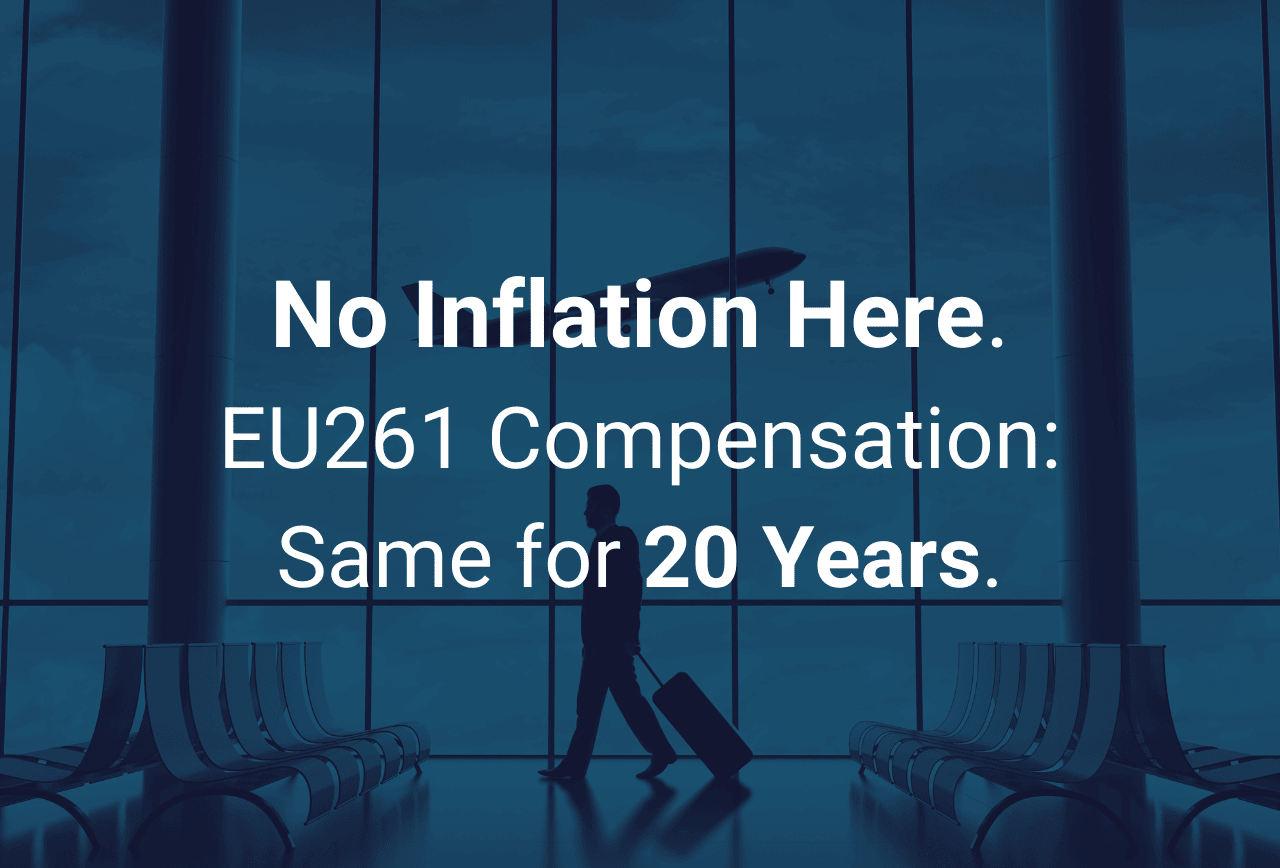
EU261 Compensation: Why the Amount Hasn't Changed in 20 Years
EU261 flight compensation has stayed the same for 20 years. Here's why the €600 cap hasn’t increased and what it means for your passenger rights.
If you've ever faced a delayed, canceled, or overbooked flight in Europe, you might be familiar with EU Regulation 261/2004, commonly referred to as EU261. This regulation provides air passengers with compensation of up to €600 based on the flight distance. However, there’s a significant detail – these compensation amounts have not changed since 2004.
You may find yourself questioning why, in an era where inflation influences nearly every facet of life, the compensation outlined in EU261 has remained stagnant. Let's explore some fundamental reasons behind this:
1. Simplicity and Stability
One of EU261's main strengths is its clarity. Passengers know exactly what they are entitled to based on straightforward criteria. The three-tiered system of €250, €400, and €600 (depending on flight distance) simplifies claims and prevents disputes over fluctuating amounts. Changing the compensation amounts regularly could introduce complexity and confusion.
2. No Automatic Inflation Adjustment
Unlike some regulations that include provisions for inflationary adjustments, EU261 sets fixed amounts that don't automatically increase over time. This means that unless EU lawmakers amend the regulation, the compensation stays the same, regardless of how the cost of living or travel evolves.
3. Refunds and Rebooking Still Apply
It’s important to note that while the compensation amounts remain unchanged, airlines are still required to refund your flight or offer an alternative route at no additional cost. The compensation is not just a refund – it is meant to add burden to the airline when disruptions occur due to their fault. This dual protection ensures that passengers are not left stranded or financially burdened by delays and cancellations.
4. Focus on Deterrence, Not Payouts
EU261 was designed primarily to deter airlines from causing unnecessary disruptions, rather than providing passengers with windfall payments. The amounts were set high enough to encourage airlines to improve service but not so high that they would cripple the industry. The focus is on accountability, not financial gain for travelers.
5. Airline Lobbying and Resistance
Airlines have pushed back against increasing compensation amounts, arguing that higher payouts could lead to increased ticket prices for everyone. The aviation industry contends that rising costs would ultimately be passed onto consumers, which could reduce travel accessibility.
6. Ongoing Talks, Little Progress
Although there have been discussions within the EU to reform and update EU261, progress has been slow. Proposed amendments have faced delays, partly due to the complexity of balancing passenger rights with airline interests. Until a consensus is reached, the compensation amounts remain unchanged.
What Does This Mean for You?
The unchanged compensation figures may seem outdated, yet the regulation continues to be an effective tool for ensuring accountability among airlines. If your flight is delayed for over 3 hours, canceled less than 14 days before departure, or if you're denied boarding, you still qualify for compensation under EU261. Although the law may not reflect inflation adjustments, the protection it provides is still crucial. If you've encountered a flight disruption, feel free to assert your rights, and we'll take care of the claims process for you.

Was your flight disrupted?
Submit your claim now and get up to €600 in flight compensation!
Company
Newsletter
© 2026 Langround, All Rights Reserved
